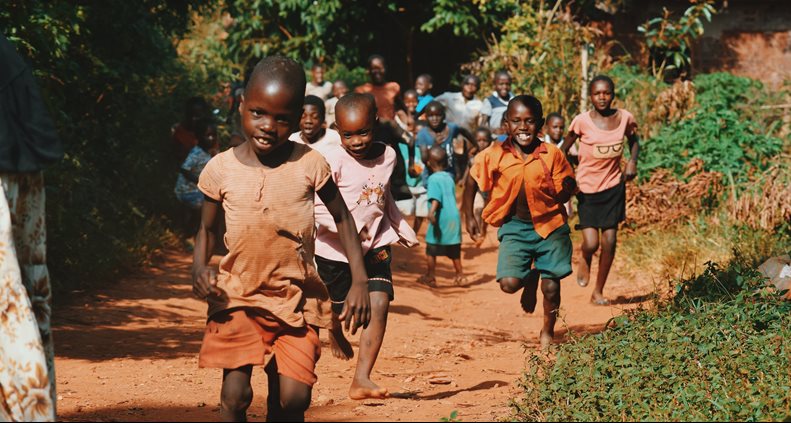A new report, co-authored by experts at the University of Sussex and Brighton and Sussex Medical School, warns about the health impact of climate change on the world’s children.
Dr Sonja Ayeb-Karlsson, Lecturer in Global Health, and Professor of Climate Science & Society Dominic Kniveton were contributing authors of the Lancet Countdown on Health and Climate change reports. The 2019 report sets out the lifelong health consequences of rising temperatures for a child born today should the world follow a business-as-usual pathway.
It notes that as temperatures rise, children will be exposed to malnutrition due to food shortages and rising prices, while suffering the most from a rise in infectious diseases.
Children are more vulnerable to air pollution and other environmental stress as their bodies are still growing and their immune and nervous systems are still developing.

As a member of two working groups for The Lancet Countdown, Dr Karlsson leads work on mental health and climate change, as well as indicators related to extreme weather-events lethality, migration, displacement, sea-level rise and child mortality.
She said: “Our study, which involved 35 global institutions and 120 experts, notes that children are more likely to develop respiratory diseases or asthma due to fine particulate air pollution that is principally driven by fossil fuels and exacerbated by climate change.
“Children are also more likely to die of diarrhoeal disease due to, for example, the lack of clean drinking water, which is a common effect of dry-spells and droughts that are increasing in frequency and magnitude due to climate change.
“Lately, more studies are also linking air pollution to increased mental health risks; a research area that we urgently need to pay more attention to.
“In September this year, UNICEF published an open letter urging that the climate crisis, protracted conflict, and the rise of mental illness, migration and population movements are among the biggest emerging global threat to children. The letter warns that the global climate crisis has the potential to undermine most of the gains made in child survival and development over the past 30 years.
“The rise in extreme weather events, polluted air, prolonged droughts and floods are disproportionally affecting the development of one of our most vulnerable populations, our children.
“Mental illness among adolescents has been on the rise, depression is now among the leading causes of disability in the young. Promotion, prevention and therapeutic treatment and rehabilitation for children and adolescents affected by mental health issues must be prioritised. To accomplish this, stigma and taboo surrounding mental ill-health must be challenged so that treatment is sought and support provided."
The Lancet Countdown on Health and Climate Change is a comprehensive yearly analysis, tracking progress across 41 key indicators, demonstrating what action to meet Paris Agreement targets – or business as usual – means for human health.
The authors have called for the health impact of climate change to be at the forefront of the agenda at the UN Climate Conference (COP25) next month.
Dr Nick Watts, Executive Director of the Lancet Countdown said: “The damage done in early childhood is persistent and pervasive, with health consequences lasting for a lifetime. Without immediate action from all countries to cut greenhouse gas emissions, gains in wellbeing and life expectancy will be compromised, and climate change will come to define the health of an entire generation.”
The report also offers some cautious optimism, noting that the growth in renewables accounted for 45% of total growth in power generation in 2018 (27% from wind and solar power), and low-carbon electricity accounted for a third of total electricity generation worldwide in 2016.
It also suggests what the world would look like for children if the ambitions of the Paris Agreement pathway were met, noting that if global warming was limited to well below 2˚c, a child born in the UK today could see an end to coal use by their 6th birthday.
By the time they reach their 31st birthday, a child born today could see the world reach net-zero emissions ensuring a healthier future for coming generations.
Read more about the research on Reuters or view the full report here >